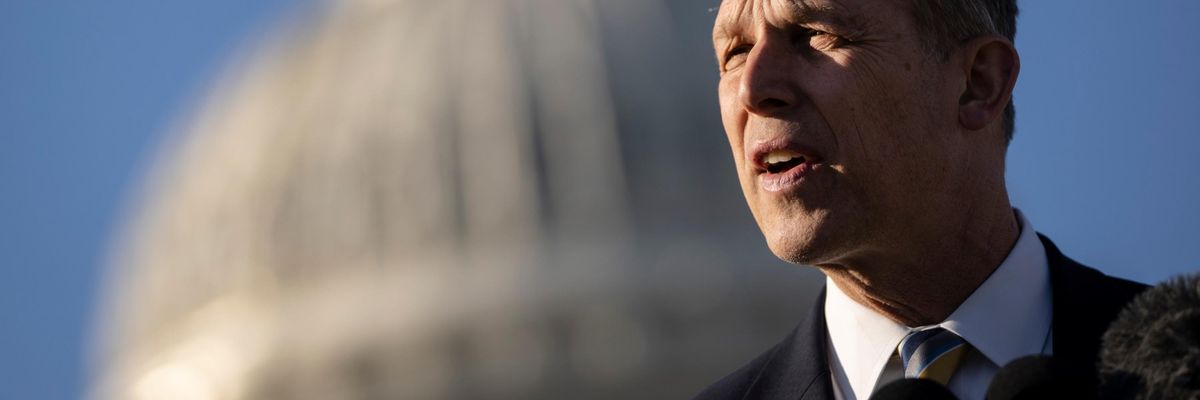[T]wo equally convenient solutions; both dispense with the necessity of reflection.
-- Jules Henri Poincare
There is more than one way to skin a cat. That was the lesson learned from (a) the murder of the school children in Uvalde, Texas and (b) revelations that came during the first public hearing of the January 6 committee that took place on June 9, 2022. But first things first. The Uvalde lessons.
Following the murder of the school children in Uvalde, countless Republican members of the House of Representatives defended the presence of guns among us, describing them as respected members of our society enjoying the same constitutional rights as the rest of us. Indeed, one of their most compelling arguments about why guns in any form should enjoy the same rights as the rest of us was that they were protected by the Second Amendment to the United States Constitution.
In responding to those who suggested that the rights of guns to become respectable members of society only when owned by people who are 21 years of age or older, defenders of the rights of guns to become respectable members of our communities correctly observe that there is nothing in the Second Amendment to the United States Constitution on which the guns' friends rely, that imposes that age limit. That is a compelling argument and the only question that remains unanswered is why the friends of guns have permitted their ownership to be limited to those who have attained age 18. That age is also not specified in the Constitution and, as a defender of the right of guns to be respectable members of society, a question that some may pose is, why are those who have not yet attained age 18 not given the right to be armed that is now enjoyed by the 18-year old? That is especially relevant since had the 4th graders in Uvalde been armed there might have been a completely different outcome to the tragedy.
In addressing the Uvalde tragedy and seeking a solution to the unending gun violence present in this country, some members of Congress offered a solution that those who want to raise the age of ownership have not addressed-prayer. Two members of the House of Representatives, Steven Scalise (R.La.) and Louie Gohmert (R. Texas) suggested that the answer to the endless massacres in which guns are important participants is not to limit guns' rights but prayer. Following the testimony of one of the children who survived the mass shooting in Uvalde, Mr. Gohmert said that the school massacres were a result of the absence of prayer in the public schools. In a speech on the House floor he said Democrats were disgusted "hearing about prayers. Look, maybe if we heard more prayers from leaders of this country instead of taking God's name in vain, we wouldn't have the mass killings like we didn't have before prayer was eliminated from school." Ignoring others acts of violence involving schools and school children such as bombings in the 1960s, Scalise said that mass shootings didn't occur in the 1960s because: "We actually had prayer in school during those days."
Gohmert and Scalise are not alone in their belief that appealing to a higher power can be a solution to a problem. Thus it is that we learned during the first public presentation by the January 6 Committee that seven members of the House of Representatives sought forgiveness for their sins, before their sins had even been publicly disclosed, by appealing to a higher power. It was the seven members of Congress who, feeling contrite for their past sins, sought pardon for their transgressions by appealing to a higher authority. In their case the higher authority was not God, but the president of the country against which they realized they had committed transgressions, the consequences of which, unlike mass slaughters by gun holders, could not be avoided by prayer.
As of this writing the only member of Congress who has been definitely identified as seeking a presidential pardon from the trump is the congressman from Pennsylvania, Scott Perry. In response to the identification of Scott Perry as one of the seven congresspeople who had sought pardons from a higher authority for their actions in trying to overturn the results of the 2020 election. The names of others who have appealed to the same higher power include Reps. Andy Biggs, Mo Brooks and Paul Gosar. They have all refused to speak to the House Committee and it is not yet confirmed that they joined Rick in appealing to a higher authority for pardons.
We cannot know whether resorting to prayer to a higher power will result in an end to the school massacres that occur on a regular basis. We do know, however, that the appeal for pardons by the Congressmen fell on deaf ears that belonged to the recipient of the request while he still had to power to grant forgiveness to the supplicants. Only time will tell what the consequences of the acts for which the supplicants unsuccessfully sought pardons will be. Future gun massacres, if any, will instruct us in the power of prayer.

